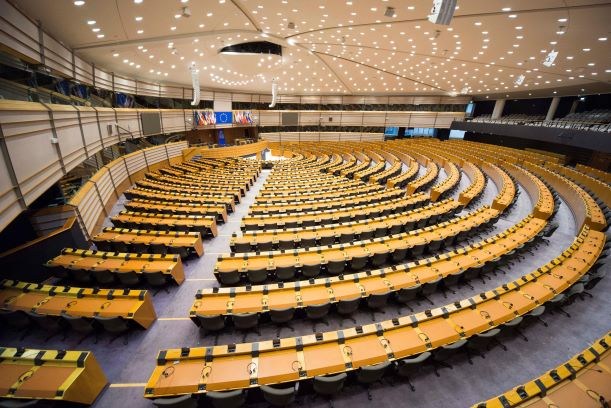The European Parliament is facing a backlog since 2019 in cases concerning lifting the immunity of members who are suspected of wrongdoing or have been convicted for crimes in their home countries.
Parliamentary immunity is a system which protects the MEPs and enables them to freely perform their tasks and expressing their opinions without fear of legal actions against them. However, MEPs are not above the law and their parliamentary immunity can be waivered in case of crimes committed by them.
In some countries, members of the national parliaments and heads of state enjoy immunity against prosecution as long as they are members or in office. This is not the case in the European Parliament (EP). Lifting immunity is governed by the Parliament’s Rules of Procedures but the process is cumbersome and carried out under the utmost confidentiality.
Requests for the waiver of a member's immunity - transmitted to the parliament by the judicial authorities of a member state - are dealt with by the Committee on Legal Affairs. The committee deals with the request “in camera” (a strictly confidential meeting) and prepares a decision for the plenary of the parliament.
Under normal circumstances, the immunity process in the committee takes 4 – 6 months depending on the nature and complexity of every particular case, Spanish MEP Adrián Vázquez Lázara (Renew Europe), chair of the committee, told The Brussels Times.
“However, since March 2020, as it is well known, COVID-19 has greatly affected and altered our institutional works and timings.” In fact, no meetings have taken place since the outbreak of the pandemic until November last year.
The coronavirus crisis has delayed some of the work and still poses a threat that makes timing very uncertain, he says. “The evolution of the pandemic will determine how fast we can all move back to normal and how quickly we can get through the accumulated files pending for resolution, including immunity cases.”
For an outsider, it is an impossible task to access any information about the pending cases in the committee. The Parliament maintains a Legal Observatory or register on all its files but the files on the immunity cases only mention the name of the MEP concerned without any information about the background and alleged criminal offence.
One of the most serious cases, reported by media, concerns a Greek MEP, Ioannis Lagos, who was convicted last October in his absence by a Greek court and sentenced to 13 years in prison for his complicity in the Golden Dawn party, which the court ruled was a criminal organisation.
The president of the EP announced on 11 November that the Greek authorities have requested to waive Lagos’ immunity. The request was promptly sent to the legal committee and there the process is on-going. A rapporteur has been appointed and discussions will start according to the rules of procedure.
In principle a MEP can keep his/her seat even if the immunity is waived. The mandate of an MEP is a national mandate and cannot be taken away by any other authority. Lifting the immunity merely enables the national judicial authorities to proceed with an investigation or trial. In the case of Lagos, the trial has already taken place and he has been found guilty.
A Greek official told The Brussels Times that the Greek Ministry of Justice has taken all the necessary steps for the issue. “We understand that the current situation with the pandemic makes it more difficult and slowers the procedures in the EP. We hope that we’ll have a decision as soon as possible so that the decision of the Greek court will be executed.”
“During most of the coronavirus crisis until now, no meetings could be held,” confirmed Danish MEP and committee member Karen Melchior (Renew Europe). Despite the importance of the legal committee, not all member states are represented in the committee, mostly for historical reasons, she says. Some member states, e.g. Spain and France, show more interest in immunity issues.
Is the work of the committee transparent? “It’s not an ideal situation with no information at all being available,” she admitted, “however we need to ensure that the information cannot be used as a political weapon against suspected MEPs. I would want to look at ensuring more transparency."
“We might need an agreement with the European Council to open up for more transparency in cases related to wrongdoings in the member states,” Karen Melchior added.
“Lagos is a known figure and it was public court case, so it’s hardly a secret that he is subject to the immunity procedure. For others the level of publicity can be different. In order to ensure equal treatment, we need to apply the same requirements for conditionality and for more transparency.”
The cases vary very much and are dealt with in strict chronological order, counting from the date of registration. It will take quite some time until Lagos’ case will be discussed by the committee. In the meantime, he receives his salary from the EP and cannot be extradited to Greece to serve his sentence.
M. Apelblat
The Brussels Times

